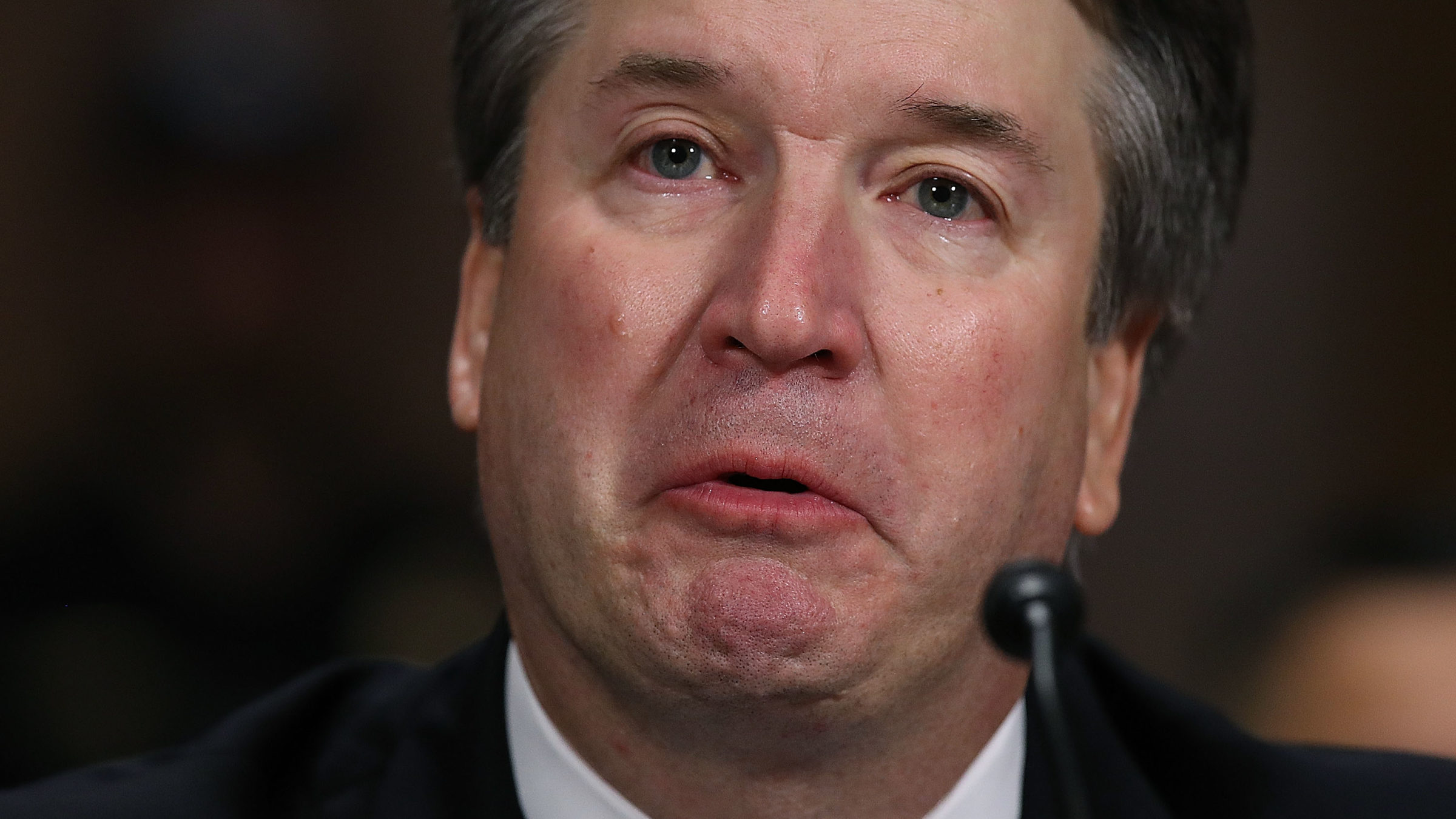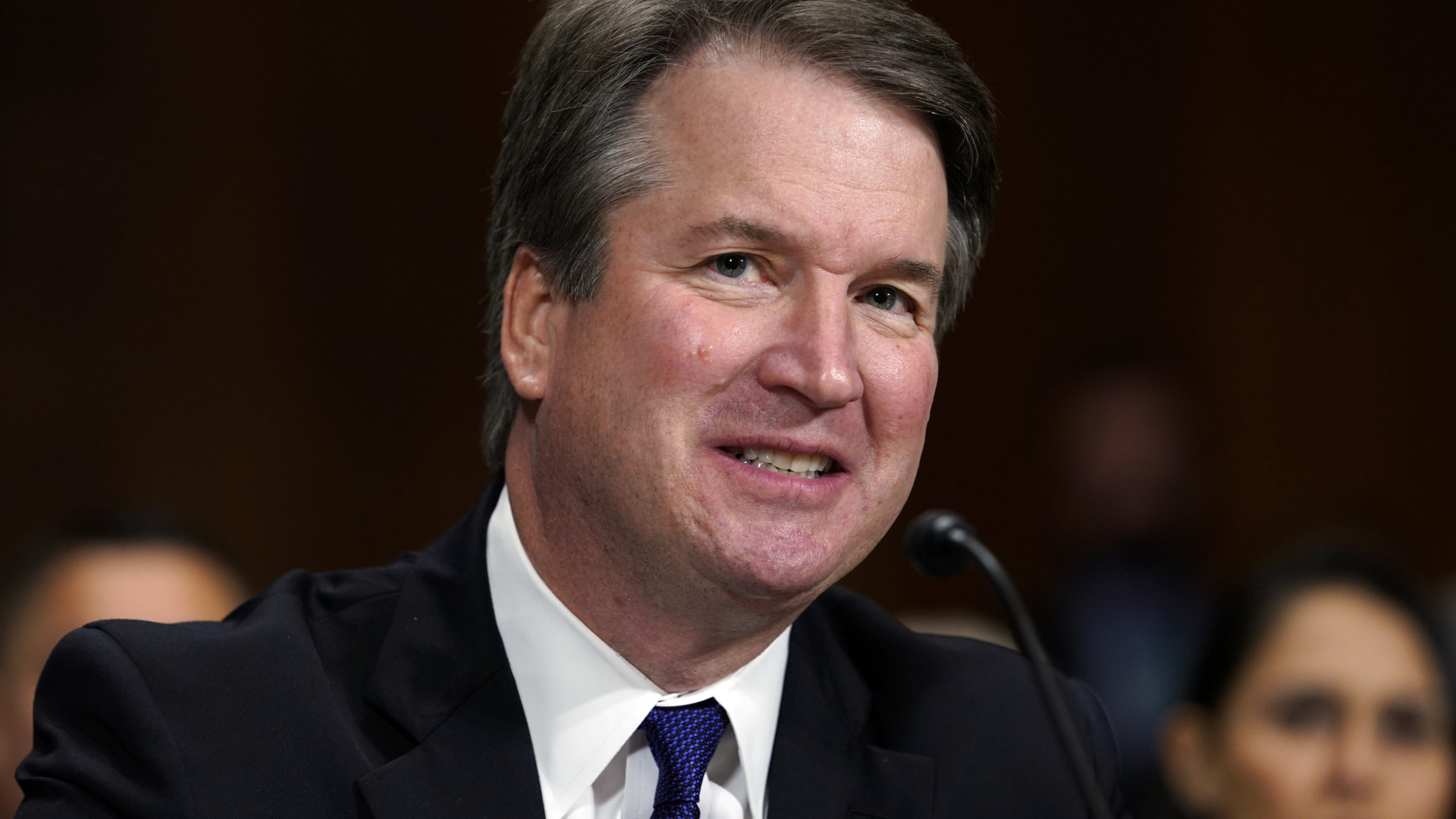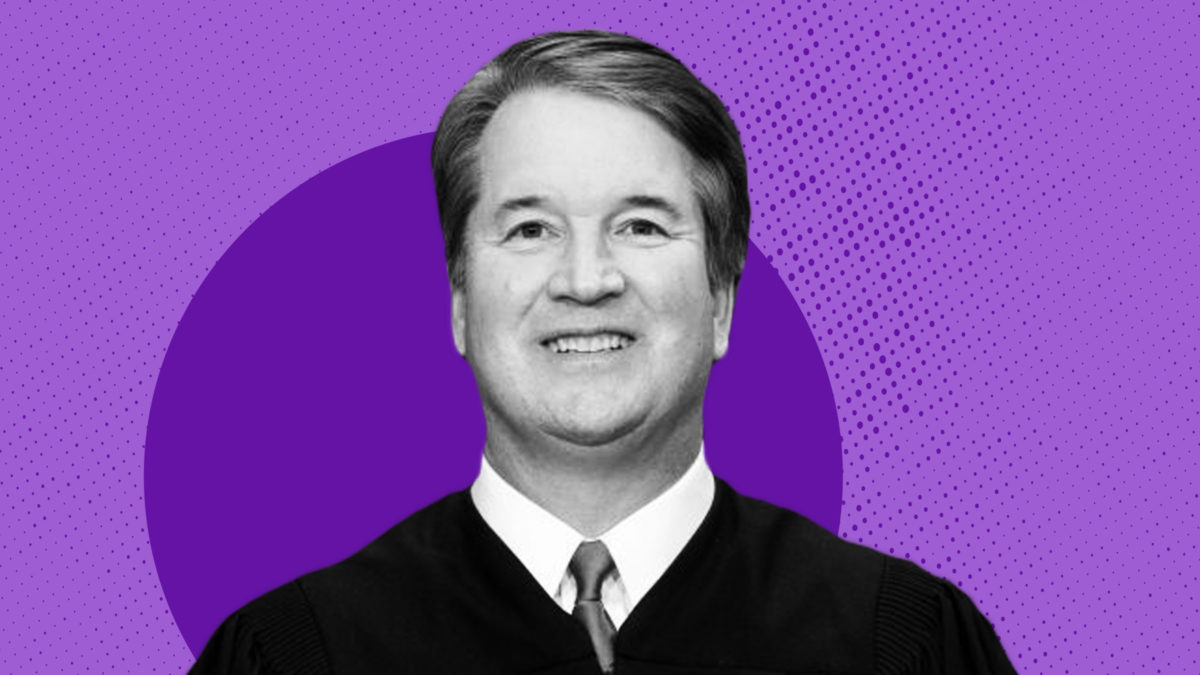Sam Alito’s majority opinion in Dobbs v. Jackson Women’s Health Organization, which the Supreme Court used to overrule Roe v. Wade last Friday, didn’t contain much that wasn’t in the draft that leaked several months earlier. However, this was the first opportunity to see the three separate concurrences from Justice Clarence Thomas and Brett Kavanaugh and Chief Justice John Roberts. While Thomas and Roberts both traveled their well-worn paths—Thomas’s unhinged screed calling for the rollback of basic human rights, and Roberts’s plaintive searching for a middle ground that his colleagues ignored—Kavanaugh’s concurrence maintains his own reputation: the insufferable defender of conservative outcomes who cosplays moderation.
If you thought “spittle-flecked fratboy rage confirmation hearing” Kavanaugh was the worst version of Kavanaugh, you haven’t met “I’m just a humble country lawyer trying to do right by the nation” Kavanaugh after being one of five justices voting to end the right to abortion access. His concurrence strains to impart to readers how very, very troubled he was by the gravity of the question before him. “Amidst extraordinary controversy and challenges, all [justices since Roe] have addressed the abortion issue in good faith after careful deliberation, and based on their sincere understandings of the Constitution and of precedent,” Kavanaugh, congratulating himself on joining their ranks. “I have endeavored to do the same.”
He has not, in fact, endeavored to do the same. Kavanaugh was functionally grown in a lab to be a Supreme Court justice who could overturn Roe. Like all the conservatives, he’d like to believe he’s on the bench for his big-brained contributions to American jurisprudence. Like all the conservatives, the reason he’s on the Court is to unwind 50 years of constitutional protections for women and pregnant people.

When the Starbucks barista who used to remember your drink makes you order at the counter like everyone else (Photo by Win McNamee/Getty Images)
Kavanaugh’s anti-choice bona fides predate his promotion to the Court. Just nine months before Trump tapped him to replace Justice Anthony Kennedy, Kavanaugh, then a federal appeals court judge, dissented in Garza v. Hargan. In Garza, a 17-year-old undocumented immigrant sought and received a judicial bypass to obtain an abortion while in the care of the Office of Refugee Resettlement, which sought to block the girl from leaving its shelter to obtain abortion care. Ultimately, the D.C. Circuit Court of Appeals that ORR’s requirement that she obtain an in-country sponsor in order to get an abortion imposed an “undue burden” on her right.
Kavanaugh dissented, though, declaring he was “accommodating the competing interests” between the teenager’s rights and “fetal life.” He also conspicuously adopted the rhetoric of the anti-choice movement, complaining about the prospect of allowing “unlawful immigrant minors to have an immediate abortion on demand.” It’s a mendacious little piece of writing, but as an audition for Donald Trump’s Supreme Court, it was spot-on.
Kavanaugh’s subsequent ascent has not made him any less inclined to assert that he alone understands the constitutional balancing of interests. His Dobbs concurrence adds nothing of substance to the case. Unlike Roberts, he doesn’t disagree with the majority’s reasoning; unlike Thomas, he doesn’t think the Supreme Court should just get rid of privacy and be legends. He’s just writing to say he agrees with the majority, but also would like you to hear his unique thoughts.
In this case, Kavanaugh’s unique thoughts consist of such clever things as CTRL-F searching the Constitution for the word “abortion” and, after coming up blank, throwing up his hands to say, “On the question of abortion, the Constitution is therefore neither pro-life nor pro-choice. The Constitution is neutral.” It’s a sort of hyper-lazy textualism that he first trotted out at oral argument, waxing eloquent about a “scrupulously neutral” Constitution. Kavanaugh liked his turn of phrase so much that he expressed it twice in just a few pages in his concurrence, and in nearly the same words: “In my judgment, on the issue of abortion, the Constitution is neither pro-life nor pro-choice. The Constitution is neutral.”
Kavanaugh also tries to position himself as some sort of moderate, but the results are wildly incoherent. For example, on the one hand, he declares that the Constitution “does not grant the nine unelected Members of this Court the unilateral authority to rewrite the Constitution to create new rights and liberties based on our own moral or policy views.” On the other, he promises that Supreme Court precedents like Griswold and Eisenstadt (contraception) Lawrence (same-sex sodomy) and Obergefell (same-sex marriage) are safe from this Court because they do not “destroy a ‘potential life.’”
Kavanaugh thus appears to have created his own constitutional right—a mandatory reverence for “potential life”—one that appears nowhere in the text. Additionally, if “potential life” is such a special and necessary constitutional consideration that must be balanced, why on earth can states set it aside post-Dobbs and give it no weight? It’s a too-clever-by-half conceit on Kavanaugh’s part, all in service of his self-image as a straight-shooting moderate kinda guy. (At one point, he even praises himself for not joining a Dobbs opinion that outlaws abortion, which is sort of like telling the person you just mugged to be grateful you didn’t kill them, too.)

When the Starbucks barista who used to remember your drink makes you order at the counter like everyone else, but you got to take away her civil rights (Photo by Andrew Harnik-Pool/Getty Images) (Photo by Andrew Harnik-Pool/Getty Images)
Kavanaugh’s concurrence in the Second Amendment case the day before, New York State Rifle & Pistol Association v. Bruen, had the same vibe. There, as his 6-3 conservative supermajority functionally barred states from regulating guns in public, Kavanaugh rolled up in a concurrence to tell people they’re hysterical if they actually think this means what it means. States, Kavanaugh informs the reader, can still require concealed carry applicants to undergo fingerprinting, a background check, and firearms training. This, he says, contrasts with New York’s law, which gave “open-ended discretion to licensing officials.” This is a lot of words to say nothing: Per Kavanaugh, states can pass laws that require them to issue gun permits, but can’t pass laws that give them any discretion about when, how, or to whom to issue those gun permits.
Kavanaugh also reminds the reader that “properly interpreted, the Second Amendment allows a ‘variety’ of gun regulations,” and quotes Justice Antonin Scalia’s majority opinion in District of Columbia v. Heller, which left the door open to restrictions that prevent people convicted of felonies or mentally ill people from acquiring weapons. These narrow prohibitions, however, are unlikely to prevent the routine horrors of random mass shootings, or stop people from assembling the arsenals necessary to carry them out.
Like his concurrence in Dobbs, this is just a vague promise of nothing, of Kavanaugh pretending he could ever pump the brakes on a Court careening out of control. His list of supposedly “safe” precedents in Dobbs, too, is an extremist wishlist: the elimination of the right to privacy, barring people from traveling to another state to obtain an abortion, and retroactive criminal punishment for providing an abortion prior to Dobbs. None of his colleagues are going to listen to Kavanaugh’s half-hearted arguments, and he knows it; he is just trying to wash his hands of the consequences.
Kavanaugh doesn’t really want to tap the brakes, nor does he intend to. He’s just hoping you think he might do that someday, thus bestowing on him the mantle of Justice Anthony Kennedy’s egotistical, whimsical, swing vote status. Unlike Alito, who seems to relish his role as a sentient Facebook comment section, Kavanaugh wants people to like and respect him—to think of him as a conservative yet sober-minded jurist. In reality, he’s just another anti-choicer who is happy to strip people of their rights but still wants them to chat him up in the supermarket aisle. His concurrence is a lame attempt to put respectability lipstick on a reactionary pig. Everyone but him sees through it.

